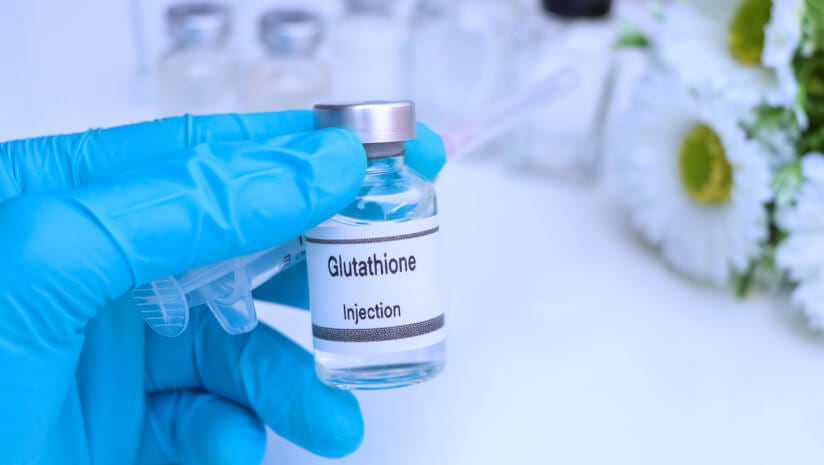She is one of the celebrities embracing glutathione, often called the body’s “master antioxidant”, because it plays a central role in neutralizing free radicals.
While naturally produced in the liver, getting additional glutathione can be accomplished either intravenously or by daily oral supplementation. Glutathione use is gaining traction, and the substance is likely to experience serious market growth, with supplements constituting the most widely consumed product format.
While capsules and tablets may offer a more affordable alternative for long-term consumption, Paltrow has espoused the benefits of glutathione and said she loves taking it via IV.
When used correctly, IV glutathione therapy may offer acute support, particularly for recovery, detox or neurological flare-ups, said Dr. Nayan Patel, PharmD, and founder of Auro Wellness.
“It’s useful in short-term therapeutic windows but less ideal for long-term use due to cost, invasiveness and the need for clinical oversight,” he said.
As Dr. Patel, who is also CEO of Central Drugs Compounding Pharmacy and author of ‘The Glutathione Revolution’, said, improper IV administration can present risks such as incorrect dosing, lack of medical supervision or administration of overly high volumes too quickly.
Glutathione can also rapidly break down into amino acid components in plasma, limiting its sustained effectiveness unless administered repeatedly.
IV glutathione began gaining traction in functional and integrative medicine circles in the late 1990s and early 2000s, Dr. Patel explained.
“While it’s hard to attribute its origin to a single individual or group, it was adopted as a method to bypass the gut and rapidly elevate glutathione levels, particularly for patients with Parkinson’s, liver dysfunction or heavy toxic burdens,” he said.
Safety
There may also be concerns regarding the safety of IV glutathione supplied to some compounding pharmacies.
For example, the U.S. Food and Drug Administration warned compounders in 2019 not to use glutathione-L-reduced powder distributed by Letco Medical in Decatur, Alabama to compound sterile injectable drugs for patients. The agency’s concerns surrounded the use of the Letco’s product, which was connected to adverse events, including nausea, vomiting and difficulty breathing due to potential endotoxins. The company supplied its glutathione powder to 100 compounders in 30 states, according to the FDA.
The agency says health care professionals should check with their compounders regarding the source of the glutathione used to make sterile drugs for their patients.
Although they are regulated by state boards of pharmacy, not all “compounding pharmacies are following strict regulations,” said Katie Emerson, MS, RD/LDN, senior manager of scientific affairs at ingredient supplier Kyowa Hakko USA.
She added that when people start an IV glutathione therapy practice, they may not be checking a compounder’s adherence to regulations and product safety protocols.
Under section 503B of the Federal Food, Drug, and Cosmetic Act, however, a compounder can become an outsourcing facility and receive additional FDA oversight.
Supplements
Beyond its antioxidant activity, glutathione maintains redox balance and supports detoxification, especially in the liver. It is essential for mitochondrial function, immune regulation and recycling other antioxidants like vitamins C and E.
According to Dr. Patel, there is growing interest in the substance’s role in metabolic health, fertility and immune resilience, demonstrating that glutathione’s impact extends well beyond detoxification.
Recent studies are spotlighting glutathione’s importance in chronic inflammatory diseases, neurodegenerative disorders and aging, as glutathione deficiency is connected to cardiovascular issues, neurodegeneration and accelerated aging.
As people get older, glutathione not only becomes more depleted due to external stressors, but the body’s ability to rebuild the molecule from its components also slows down.
“This makes consistent replenishment even more important later in life, particularly to support detoxification, cognitive health and immune defense,” Dr. Patel said.
Traditional oral glutathione supplements struggled with poor absorption though newer delivery systems, like liposomal formulations and transdermal serums, may offer reliable systemic uptake and consistent dosing without the need for injections.
For long-term storage benefits, however, Emerson recommends oral supplements, which are supported by studies by the late John P. Richie, Jr., a Penn State University researcher who examined how the body stores glutathione. In a 2015 journal article, Richie and his colleagues described that regular intake of glutathione significantly decreased oxidative stress, while natural killer cytotoxicity increased in participants given high doses of the substance. The researchers wrote that “daily consumption of [glutathione] supplements was effective at increasing body compartment stores.”
The study was funded by Kyowa Hakko USA, which sells its trademarked oral glutathione under the Setria brand.
“Glutathione is being dispersed through the bloodstream and then stored throughout the body and in the cheeks,” Emerson said. “And there are some very interesting preclinicals that have been looking at the fermented form of glutathione that can be readily available in the bloodstream through the gut.”
As for the IV glutathione therapy versus oral supplementation, Emerson said she does not tell people one is better than the other.
She added that the IV form may be appropriate “if you feel like you need an absolute pick-me-up that’s going to help revitalize your mitochondria and give you a little more energy production.”



